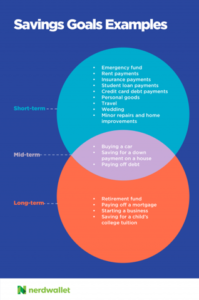
I am really glad that during tough times my friends have bailed me out and that I have done the same for them. My mom and my wonderfully big village of mentors have also been really great at supporting me financially during big transitions like our wedding and pampering us as needed. I want to say this right off the bet to show that I value giving and getting help.
As with credit cards, friends and family loans can be really helpful if used correctly. Unfortunately, as with credit cards, the system is really easy to abuse. A good Samaritan move can easily become a headache and a once strong relationship can become strained.

During graduate school, I was able to save quite a bit of money by working in university housing. That job was a life saver. The job came with “free” housing – in quotes because we worked hard for every bit of that housing. It was really nice to live in rent-free housing for three years. After those three years, I had over $10, 000 in my savings account. Yay me
My problem as one friend has repeatedly told me is that I really like helping out. Some people might say I like fixing problems that have nothing to do with me. I do not think this is a necessarily bad trait. The challenge is that when I was younger, I did not know how to manage this gift.
In a single year, I loaned out over $8,000 to friends and family for various projects that had nothing to do with me. One friend wanted money for her husband to travel to Europe for his graduation. At 26 years old I was loaning over $3k to a 40 something-year-old homeowner to travel all the way from Zimbabwe to Europe for his Ph.D. graduation. I know what it sounds like and I agree. Dah! That was really dumb- that friendship ended in flames. It was a really ugly break up because when I asked for my money back my friend switched topics and called me a word that I can’t write here – yep. It went there.

I also loaned money to a few close relatives who were engaged in a number of projects including house building. I did get back some the money over time, but we had major disagreements over how much I was actually owed. I probably hadn’t done a really good job of keeping track of my expenses. Funny thing- I do not have a house or a brick to my name. The joke is on who??? A running joke between my mom and me is that I no longer loan money to folks with title deeds. Another relative was what I have termed a revolving borrower. They were really good at paying back on time but in a week or so they would be back asking for another loan. Since I was suffering from idle money it was way too easy to loan them money.

One expense I do not regret but could have managed better was contributing to a family fund for a close relative who was very ill. Family emergencies should not drain you financially. There are strategies to plan ahead that we can discuss and brainstorm.

Teamwork makes the dream work but only if there is a clear dream.
DO NOT HAVE IDLE MONEY!!!!

It is important to set short- and long-term goals for yourself. My problem at that time is that I was just saving without any serious framework for what I was saving for. My major expenses -rent, food, and tuition where taken care of which made me a little complacent. I was young and not really thinking about buying a house because I had no idea where I was going to settle after grad school. Idleness is bad for your money and bad for your future. When friends and family asked for money, of course, I said yes because I had the money and I assumed that they would pay it back. I did not account for unforeseen events that might prevent even the most well-meaning person to pay back.
ALWAYS HAVE A 5 YEAR PLAN

Always and I mean always have a clear five-year plan for yourself. The actual plan does not need to be financial, but you can calculate the costs associated with your general life aspirations and transitions from stage to the next.

For example, if you are an international college or graduate student in the US the fact is that in 3 or four years you will graduate. As an international student, you will need to pay for OPT. The cost has gone up from just under $100 when I was a student to $400. You will want to go home for a visit or invite parents to graduation either one or both of those expenses will cost you upwards of $2500. You will need a place to move into after you graduate and, in most cases, you will need to pay a security deposit plus first months rent. You may move to a city that will require that you drive. These are not major goals, but you can see how quickly the costs add up. If you are now an adult, you already know how quickly the simple act of living can add up into major expenses. Try to avoid emergency situations by planning for basic things.
So how do we avoid loaning friends and family?
Ok- so in the American culture family loan contracts are a thing and they work but for most African cultures this will not work. So, your default will have to be no. No is a complete sentence. I know – I am saying this to my amazing friends who have in the past bailed me out (you should have said nooooo). The default (unless someone is dying _ which we should also talk about -life policies and health insurance are a thing- use them) should be a sweet NO.

Because we are kind people, saying no is really hard. However, if you do not have idle money then you are not actually saying no because all your money is planned for. Recently, a friend asked me for a substantial amount for a good reason but since we are praying about our future with 10 kids, I do not have extra money because growing up is expensive. I was able to say no without ruining a good friendship or feeling guilty about it. I even jokingly (no seriously) asked if they wanted to contribute to the goal.
Chipo, are you saying we can’t help our friends and family?

Of course, we can. Establish if the “right” help is money. Let us circle back to my friend who wanted to pay for her husband’s ticket to attend his graduation. There were a few options that we could have explored and in doing so we would have saved what was a really sweet friendship.
- If it was absolutely necessary for him to attend the event they could have borrowed from a bank or used their credit cards.
- Not attending graduation that year was also a viable option. For example, after my doctorate, I delayed graduation by a year. I know many other friends who have used this option.
A small Zimbabwe (extended family) fund
Over the years I have also developed a small SOS fund. We put in $20 a month. I only take from this fund to contribute to various family and friendship needs. Per month I get at an average of 5 financial requests. I have actually kept an excel document to track them over time. Some requests like can you pay for some church trip are a hard no- I do not even attend fun trips I want to go on so that is a hard pass. Can you help me pay kid’s tuition– that one requires additional questioning because tuition is not a random event. From the moment a baby is born it is a fact that they will need tuition, so it really depends. I have two kids I pay tuition for and I plan months in advance for that – even when I had my huge debt to contend with. So depending on the circumstance I really evaluate how much I can contribute but in most cases, my share is never more than 10% of the required amount. This is also the type of money I do not expect to get back, so it is charitable giving.
Health-related contributions

Back home, our healthcare sucks so inevitably family will need support. We can’t put a $ value on health. We can, however, encourage family (those who are able) to take out small health insurance plans. I was so proud of my little sister – her monthly salary is only $600 USD but she has a health plan for herself and the parents (we are cousins) along with a funeral policy. In total, she spends about $100 on these plans for herself and four others. When she got sick a while back the plan covered over $800 in treatment costs for her. (God job mainini – I love you!) When my uncle passed on recently, I was really impressed by the way the funeral policy company handled all the details. Kudos to Nyaradzo funeral policy. Since many of us had just assumed that we would help fund the funeral the family ended up with a lot of extra food that they were able to donate to relatives who needed the help.
Family weddings

Family weddings – when we got married, we avoided asking for contributions because- again a wedding is not an EMERGENCY. We (mostly me) decided on a fancy wedding near the water so we paid for it (thank you, mama, and adopted parents for chipping in). This also extended to my bridesmaids’ dresses. Why should I expect folks to pay for a navy-blue dress that they will only wear once – granted our dresses were actually cute but still. If folks can’t afford a big wedding the court option is very much viable. However, I do love gifting so I will always happily give a gift and if it is someone important to me, I break some rules and chip in. That just means I take away from another budget item. With so many friends getting married we actually have a small wedding fund to cover travel, gifts and last-minute chip in.
Are you a bank?

Basically, you are not a bank so you really must avoid giving out loans. You should also plan your life and that way you can avoid complicated questions. Idle money is bad for your health and relationships. So, by planning you are actually working towards healthier relationships. In addition to an emergency fund, you will need a few other funds related to your Africaness to keep your sanity. When we discuss remittances I will tell you something one of my very smart lady friends told me. She went to MIT and has a Ph.D. in engineering so you should probably take her advice (Love you Loloz).


Discussion